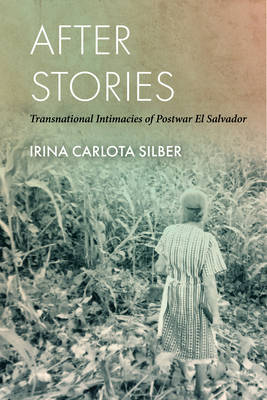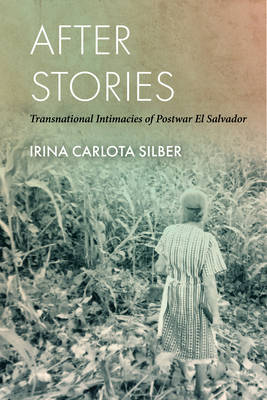
- Retrait gratuit dans votre magasin Club
- 7.000.000 titres dans notre catalogue
- Payer en toute sécurité
- Toujours un magasin près de chez vous
- Retrait gratuit dans votre magasin Club
- 7.000.0000 titres dans notre catalogue
- Payer en toute sécurité
- Toujours un magasin près de chez vous
After Stories
Transnational Intimacies of Postwar El Salvador
Irina Carlota SilberDescription
This book builds upon Irina Carlota [Lotti] Silber's nearly 25 years of ethnographic research centered in Chalatenango, El Salvador, to follow the trajectories-geographic, temporal, storied-of several extended Salvadoran families. Traveling back and forth in time and across borders, Silber narrates the everyday unfolding of diasporic lives rich with acts of labor, love, and renewed calls for memory, truth, and accountability in El Salvador's long postwar. Through a retrospective and intimate ethnographic method that examines archives of memories and troubles the categories that have come to stand for "El Salvador" such as alarming violent numbers, Silber considers the lives of young Salvadorans who were brought up in an everyday radical politics and then migrated to the United States after more than a decade of peace and democracy. She reflects on this generation of migrants-the 1.5 insurgent generation born to forgotten former rank-and-file militants-as well as their intergenerational, transnational families to unpack the assumptions and typical ways of knowing in postwar ethnography. As the 1.5 generation sustains their radical political project across borders, circulates the products of their migrant labor through remittances, and engages in collective social care for the debilitated bodies of their loved ones, they transform and depart from expectations of the wounded postwar that offer us hope for the making of more just global futures.
Spécifications
Parties prenantes
- Auteur(s) :
- Editeur:
Contenu
- Nombre de pages :
- 280
- Langue:
- Anglais
Caractéristiques
- EAN:
- 9781503632172
- Date de parution :
- 23-08-22
- Format:
- Livre broché
- Format numérique:
- Trade paperback (VS)
- Dimensions :
- 150 mm x 226 mm
- Poids :
- 385 g







